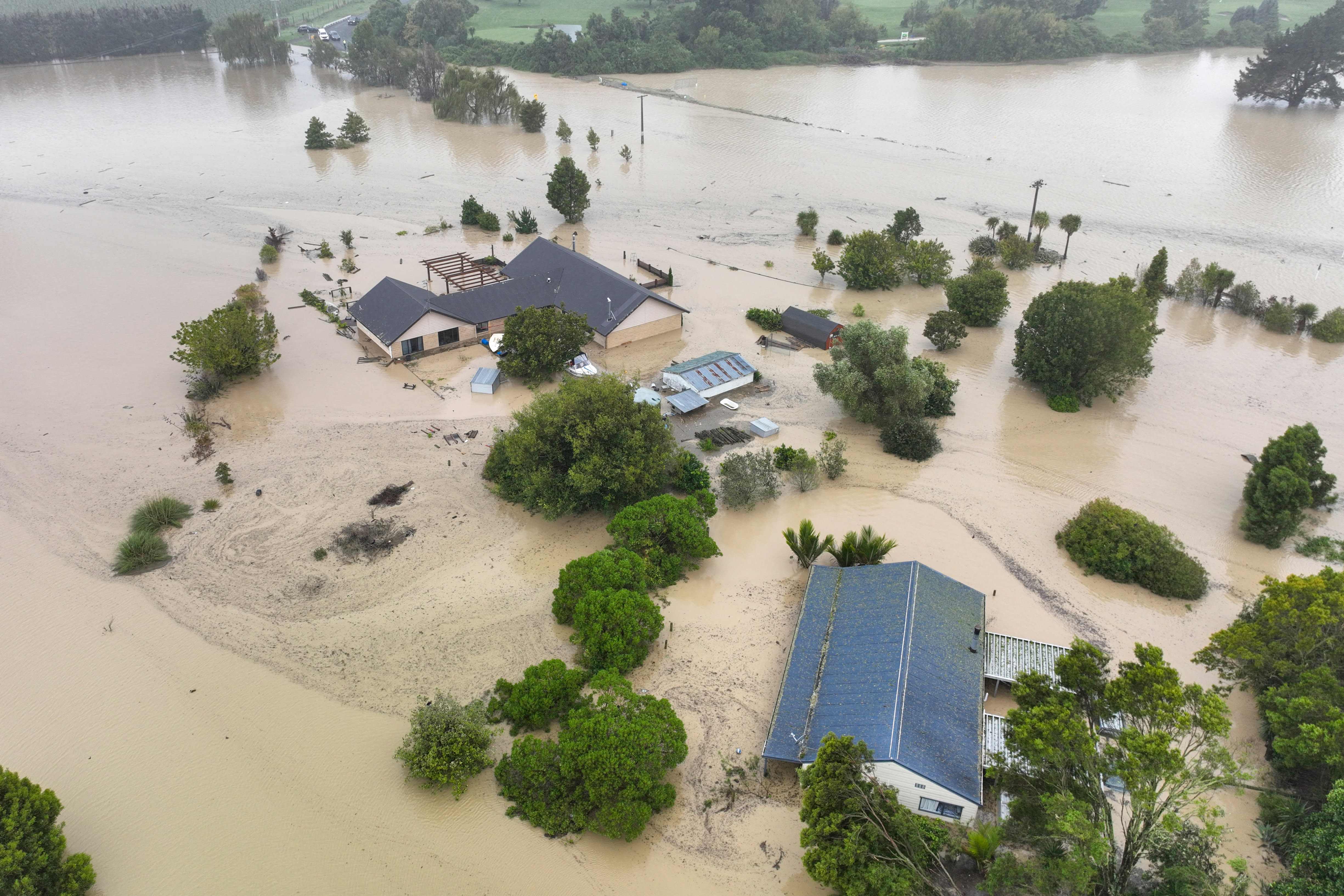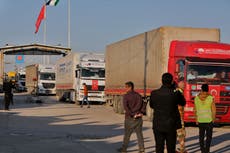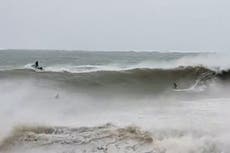New Zealand earthquake: Magnitude 6.1 tremor strikes near Wellington
Tremor felt in Wellington and ‘widely across the North Island’ as country reels from its most destructive cyclone in decades
A magnitude 6.1 earthquake has struck New Zealand, just one day after a devastating cyclone forced a state of emergency across much of the country.
The quake occurred under the Cook Strait dividing New Zealand’s North and South Islands at 7.38pm local time, according to an official monitoring service.
It is reported to have been felt strongly for several seconds in the capital of Wellington.
The tremor struck at a depth of 48km, with its epicentre some 50km from the town of Paraparaumu, according to the seismic monitoring service Geonet.
It “caused a long and strong shake felt widely across the North Island and Marlborough region”, said Geonet, which received more than 60,000 felt reports – 23,000 of them describing it as a “light” quake and fewer than 5,000 as “strong”.
There were no immediate reports of damage or injury and no tsunami warning.
It was followed by a magnitude 4.0 quake which hit 20 minutes later some 45 km south-west of Taumarunui – and came just over 10 hours after a magnitude 2.0 tremor whose epicentre was 5km from the same town, the monitoring service said.
The earthquake comes after Cyclone Gabrielle caused significant damage across New Zealand’s North Island this week, leaving at least four people dead and more than 10,000 people displaced in the country’s most destructive weather event in decades.
Asked how he felt about the earthquake, New Zealand’s prime minister Chris Hipkins said it was “unprintable”, according to local news site Stuff, which quoted him as saying: “I was looking out the window for a plague of locusts.”

New Zealand lies on the seismically active “Ring of Fire”, a 40,000-km arc of volcanoes and ocean trenches girdling much of the Pacific Ocean.
While the cyclone is now moving away from New Zealand, an unrelated weather system is forecast to bring more heavy rain in the days ahead, which will increase risks of further landslides and flooding.
Several communities remain isolated by floodwaters and landslides, whose victims include a child and a volunteer firefighter, and emergency services were preparing to make their final rescues on Wednesday.
More than 300 people were rescued on Tuesday from the Hawke’s Bay region, including 60 stranded on a single roof, said emergency management minister Kieran McAnulty, who told reporters: “Our emergency services are still carrying out rescues and land searches in a number of places.”

A weather station in the Hawke’s Bay and Napier region had recorded three times more rain overnight than typically falls over the entire month of February, MetService meteorologist Lewis Ferris said.
Nearly 1,500 people had been reported uncontactable in the North Island by Wednesday afternoon, police said, as some 144,000 properties on the island remained without power, according to the New Zealand Herald – down from 225,000 on Tuesday.
“Everyone knows we have a long path ahead of us as we deal with extensive damage to homes, businesses, roads and bridges and other fundamental parts of our infrastructure,” Mr McAnulty said.
“This is a significant disaster and it is going to take many weeks for those areas most affected to recover.”
Additional reporting by agencies
Join our commenting forum
Join thought-provoking conversations, follow other Independent readers and see their replies
Comments



Bookmark popover
Removed from bookmarks